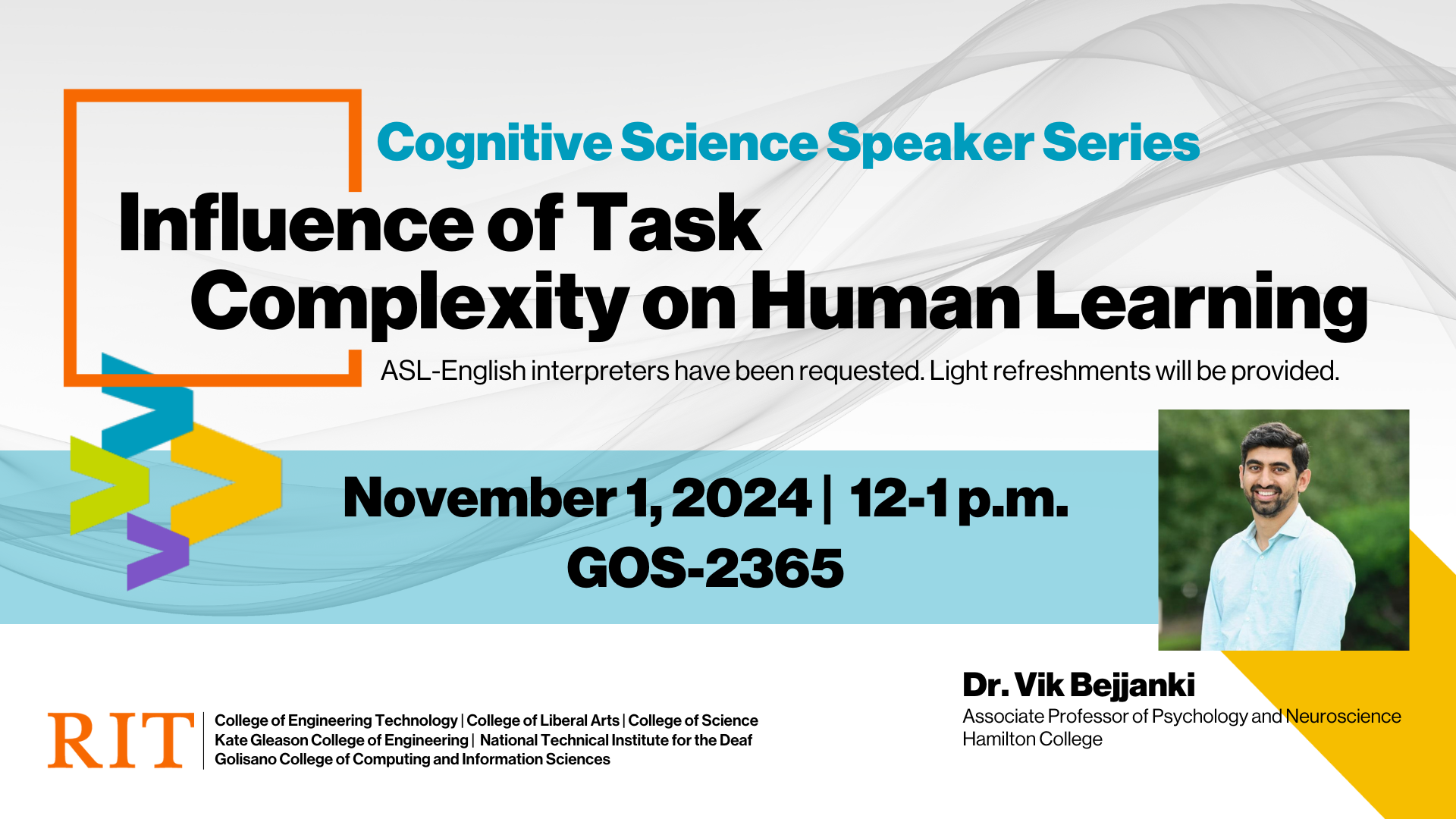Cog Sci Speaker Series: Influence of Task Complexity on Human Learning

Presenter: Dr. Vik Bejjanki
Title: Influence of task complexity on human learning
Abstract: We have a tremendous ability to learn from our experiences. For instance, we can improve our performance on nearly any task by extracting relevant information from the environment. Indeed, extensive research has shown that human observers are adept at mitigating the influence of sensory uncertainty on task performance, by integrating sensory cues with learned information in a statistically efficient manner. However, most prior studies have not adequately explored how variables such as task complexity might influence such learning. In this talk, I will present results from several experiments in which we examined learning in tasks that involve the kinds of complex statistics that are typically found in naturalistic environments. I will show that an increase in task complexity, for instance, in a manner that engenders greater use of executive function, has a dramatic impact on participants’ behavior, and that taking the influence of complexity into account provides novel insight into human learning in a number of domains.
Bio: Vikranth (Vik) Bejjanki is an Associate Professor of Psychology and Neuroscience at Hamilton College. His research is concerned with examining the neural and computational mechanisms that underlie human learning. Vik uses a range of approaches, including psychophysics, computational modeling, and functional neuroimaging to study learning and inference at multiple levels of analysis. A focus of his recent research has been on studying learning during early development using a combination of theory- driven behavioral paradigms, task-based fMRI and fNIRS in awake-behaving infants and young children, and multivariate analysis techniques.
Event Snapshot
When and Where
Who
Open to the Public
| Cost | FREE |
Interpreter Requested?
Yes









